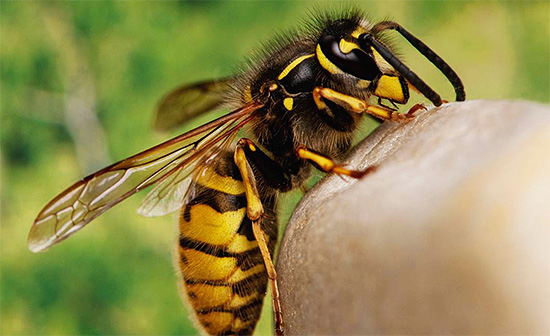
Next you will find out:
- Is a wasp sting good for humans or is it more misleading than true;
- How can a wasp sting be harmful, especially for people prone to allergies;
- The composition of wasp venom and features of its effects on the human body.
So, how is a wasp sting useful and can the insect's poison in general have a positive effect on the human body? Generally speaking, the answer to this question is not so simple as it might seem at first glance. And the “first look” here is this: because of the similarity of wasp and bee venom formulations, many fans of apitherapy (treatment of diseases with the help of beekeeping products, including bee venom) are prone to believe that wasp stings are useful and that their venom can be used in combat various diseases.
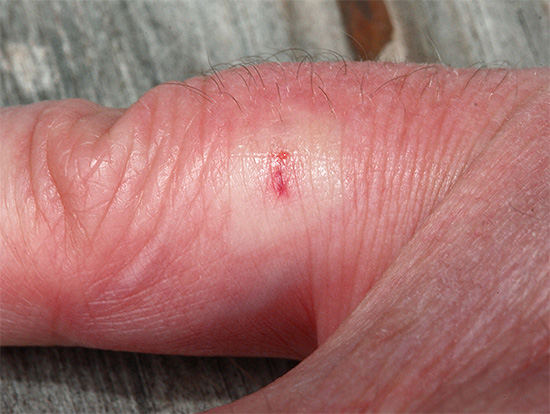
According to this version,an obstacle to the widespread practical use of wasp venom is only the difficulty of extracting raw materials: if the bee venom can be obtained in apiaries practically in unlimited quantities with a well-established technique, then to obtain the wasp venom you will need to look for wild nests and catch the insects themselves. Either somehow organize mass construction and colonization of the nests by wasps - this technology has not been worked out and seems rather problematic.
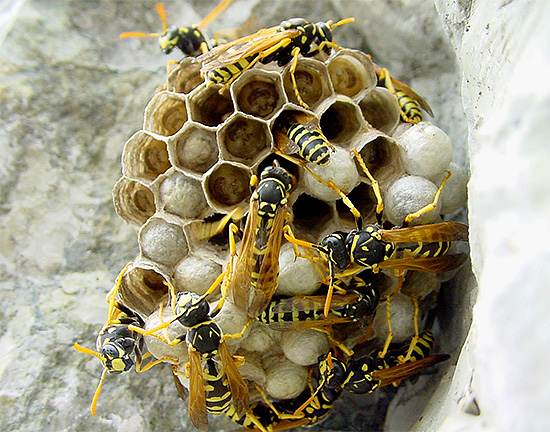
But is a wasp sting really good? Despite the fact that the composition of the poison of this insect is well studied, and scientists know how it acts on various tissues and organs, the final benefits and harms of a wasp sting to humans are almost always determined by the individual characteristics of the bitten organism - the response of its immune system.
For example, it is widely known that many people are highly sensitive to insect bites in general, and to hymenoptera bites in particular. Do you think it would be harmful for a wasp to bite them? Practice shows that for such people even a single bite will not only be harmful, but it can even be fatal.
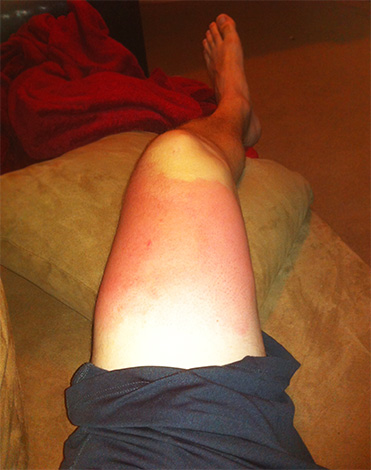
An important feature of wasp venom is its high allergenicity, sometimes leading to life-threatening edema and anaphylactic shock in sensitized people.
On a note
Even with the widely known and popular bee venom today, everything is not as simple as it may seem. In the entire history of the development of apitherapy, not a single scientific experiment has been carried out, the results of which would certainly allow us to assert that bee venom helps cure certain diseases. It is not known whether it has a healing effect on the body, or it has a placebo effect.
Its wide popularity and advertising can easily be explained by the rapid development of beekeeping and the attempts of beekeepers themselves to get the maximum income from their occupation. From this point of view, it was easy to explain the unpopularity of wasp venom: it is difficult to extract it, and no one wants to pay attention to its possible healing properties - there is bee venom, which can always be obtained in excess and use it as a panacea for many diseases.
You also will not hear much from folk healers about the high allergenicity of bee sting - talk about it once moresimply unprofitable.
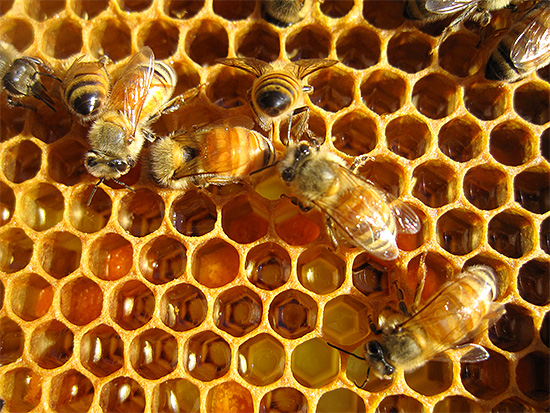
The main components of wasp venom:
- histamine, which contributes to the development of allergic reactions;
- phospholipases - special enzymes that destroy the cell walls of various tissues, as well as blood cells, as a result of which a large amount of their contents is released into the blood (in particular, extra histamine is released from the fat cells, which multiplies the allergies);
- hyaluronidase, also destroying cell membranes and leading to the development of inflammation at the site of the bite;
- acetylcholine, which plays an important role in the conduct of nerve impulses;
- hyperglycemic factor, leading to an increase in the amount of sugar in the blood.
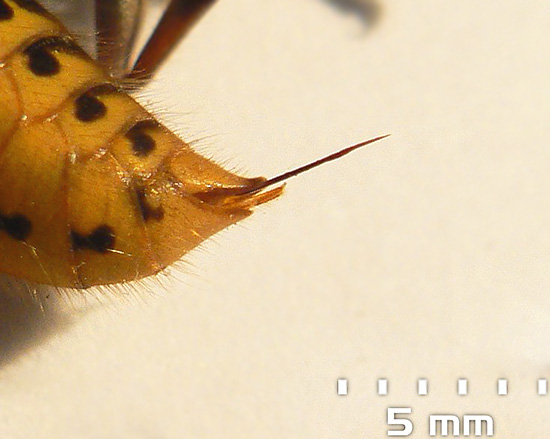
It is worth noting that different wasps have their specific composition of poison. For example, in the venom of hornets - the largest wasps - contains special polypeptides mastoparana and crabrolin. These substances also cause the destruction of the victim's mast cells and the release of additional amounts of histamine from them.
On a note
Hornet bites in some countries, for example, in Japan, China, and the United States, kill more people each year than poisonous snake bites.And in Japan the same hornets cause more deaths, all wild animals of this country combined.
According to unconfirmed reports, regular wasp bites (like bees) are useful in helping to increase the amount of hemoglobin in the blood and lower the level of cholesterol, vasodilation.
The effect of small amounts of wasp venom on the human body often leads to a certain intensification of the victim’s breathing, an increase in pulse rate and an increase in blood flow to the bitten organ. In more severe cases, severe edema, subcutaneous hemorrhage, pain in the heart, shortness of breath, dizziness, confusion, vomiting, there is no need to talk about any benefit from the bite.
Development of resistance to bites of wasps and bees with the help of wasp venom
A useful area for the use of wasp venom is the immunization of people against the bites of hymenoptera (such people, if they were not given timely assistance, could easily have died even from a single wasp or hornet bite).
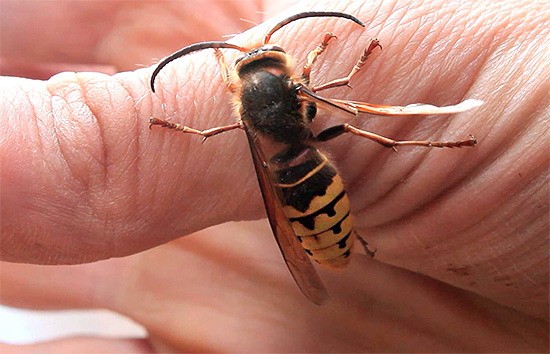
For this, allergy sufferers who have an increased sensitivity to insect bites, in small doses, inject blood into the blood based on purified and processed wasp venom, in which the concentration of allergens is lowered.After such a vaccination in humans, the level of antibodies that neutralize toxins in case of a bite temporarily increases.
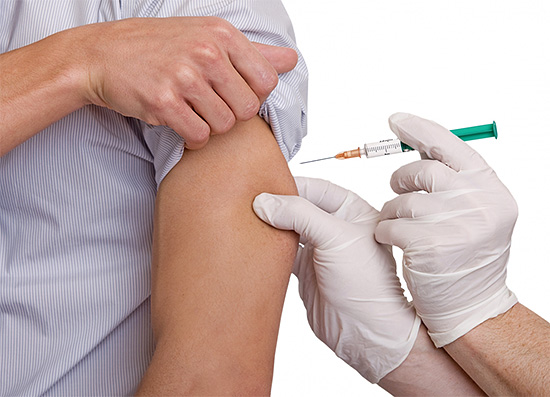
Feedback
“I read somewhere that a person can even die from a wasp sting. I can not believe it. In childhood, I was often bitten by wasps and bees, and nothing more serious than just a lump for a couple of days did not happen. Two years ago I worked as a driver and spent the whole summer driving several apiaries across the fields, and then honey from the shops. It was there that the bees bit me a lot, and by the end of the summer I did not even notice their bites. Well, that is, if it bites, it hurts, but after that I pull the sting out and that's it. After a couple of minutes, I can't even remember where she bit. And such protection remained. I recently stung a wasp on a balcony - the result is the same, there was not even a tumor ”.
Sergey, Zelenograd
It is important to note that the bites themselves should in no way be considered as a means of strengthening their immunity. For sensitized people who are sharply reacting to insect bites, such an independent natural “vaccination” can be deadly. All procedures for allergies are carried out only in clinics under the supervision of doctors.
Can wasp venom be used as a cure for cancer?
Really seriously to the use of the beneficial properties of wasp venom came up in Spain.More recently, a group of scientists from the Barcelona Institute of Biomedical Research has published the results of experiments in which components of wasp venom were used to destroy cancer cells.
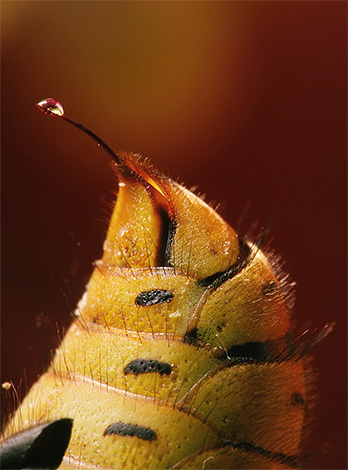
The idea of such use of wasp venom is well understood: if its components successfully destroy the walls of normal cells, as well as blood cells, they can also destroy cancer cells. The task was only to force the toxins to selectively affect the cells - to destroy the cancerous ones, but not to touch the healthy ones.
During experiments in vitro, scientists managed to "glue" the molecules of the individual components of wasp venom with a special protein that could only connect to the surface of the cancer cell. As a result, such a tandem safely passed all healthy cells in the culture and immediately adhered to the cancer cell it encountered. This was followed by the destruction of the shell of the cancer cell and its death.
All these encouraging results are only the beginning of a long journey. The next step is to test a bee toxin drug and a special transport protein in mice.
Of course, it is impossible to consider pure wasp venom wasp useful for cancer.And it would be even more foolish to use for this purpose the bites of wasps in everyday life: the poison will equally affect both healthy and diseased tissues.
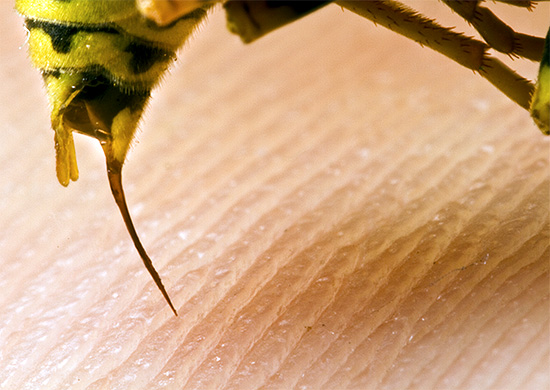
Harm from wasp sting
It is much easier to explain why a wasp sting is harmful than to find useful properties among its properties. For example, after a wasp sting:
- swelling and inflammation develop, soft tissue cells and blood vessel walls are destroyed;
- the victim suffers from pain, then usually turning into itching at the site of the bite;
- sometimes body temperature rises, there is a slight malaise;
- An allergic reaction may develop, the consequences of which will vary in weight in different people, from urticaria and headaches to severe intoxication, angioedema, and even anaphylactic shock.
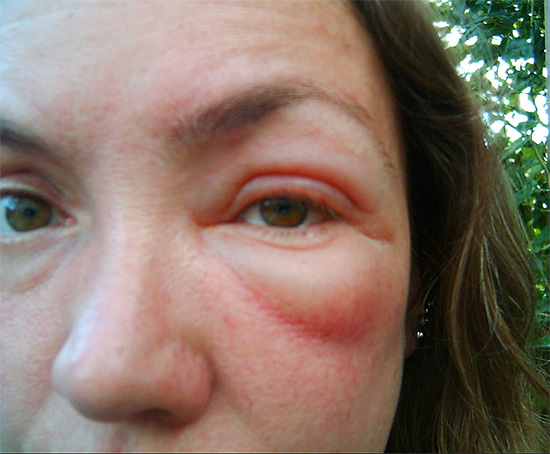
Os bites are also harmful because they often cause so-called sensitization - an increase in sensitivity to subsequent bites. This means that if the first wasp sting passed without serious complications, then the subsequent ones can cause more and more severe allergic reactions, up to almost instantaneous development of angioedema, asphyxia, anaphylactic shock and death.
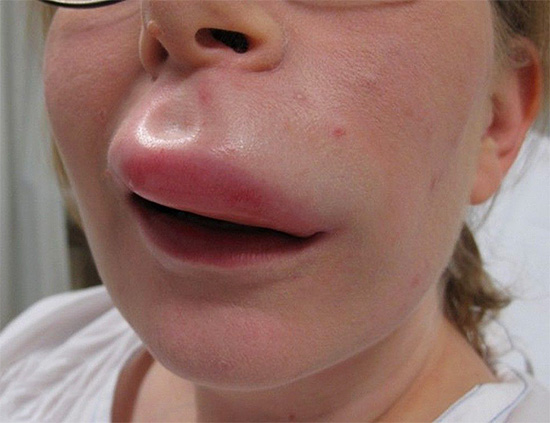
It is interesting
There is a belief in the people, according to which exactly nine hornet bites enough for a man to die. Each of these bites — no matter how much time has passed between them — will have more and more serious consequences. And after the ninth man will die. Therefore, the hornets are sometimes also called nine.
Of course, like all national signs, this is also quite conditional: many people with frequent bites of wasps, on the contrary, develop immunity, others sensitize very slowly, so even more than a dozen bites with long intervals between them will not lead to dangerous consequences. But a large number of allergies, for which the bites of the wasps are extremely dangerous, suggests that in general, such attacks are quite harmful.
It is also worth noting that multiple bites of wasps attacking with a swarm can lead to subcutaneous and internal hemorrhages, necrosis, lesions of internal organs, sometimes renal failure - in such situations, even without any tendency to allergies, a person’s life can be threatened.
Different wasps - different bites
There are more than 22,000 species of wasps in the world, and each of them has a poison with its own specific properties.
So, the bite of some road wasps is considered the second most painful bite of all insects in general (In the first place is a tropical ant bullet bite).
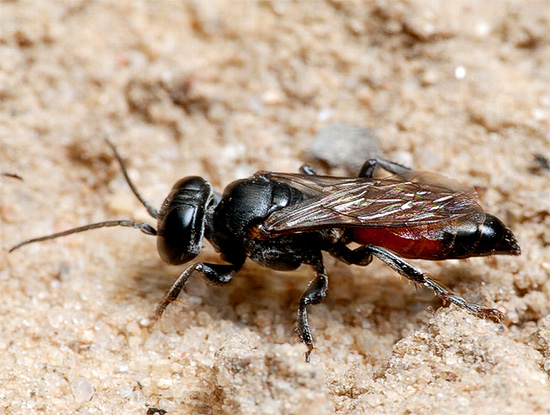
And the bites of giant hornets can cause extensive necrosis and internal hemorrhages. That is why, apart from specifying a specific species, it is not possible to unequivocally talk about how useful or harmful a wasp bite is.
It is interesting
It is not always the size of the wasp directly correlates with the strength and harm from its poison. Huge wasps, scoliums, bite barely stronger than a mosquito, since their poison is not intended to scare them off, but in order to paralyze the prey. Conversely, some small German wasps, also called velvet ants, bite much more painfully than ordinary paper wasps.
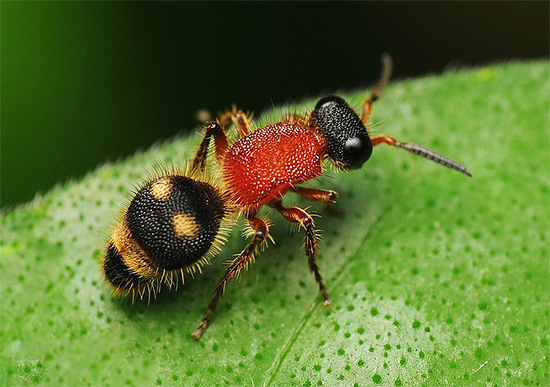
So, in general, it is still impossible to argue that bites were useful. In most cases, these stings cause unpleasant and painful sensations, for many people they are threatening to go into a far-off-bad allergic reaction. And even if you personally feel some benefit from the aspen bites, it is hardly worth recommending uncontrollably such therapy to your friends and acquaintances: who knows how their body reacts to the second, third ... or ninth bite ...
Interesting video about the high risk of bites of wasps and hornets for human health
About the benefits of bee bites and apitherapy

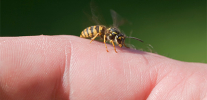
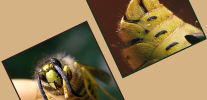
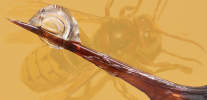
Thank.